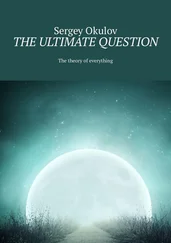Perhaps the best way to learn more about sleep and why we need it is to understand what happens to our brains when we fall asleep.
Sleep researchers believe there are at least four stages of sleep, starting from when you begin to doze to when you lose conscious awareness and transform from a waking into a sleeping state. These stages are cyclic and repeat up to four or five times for every eight hours of sleep, each cycle lasting around 90 to 120 minutes. Here’s a brief, and by necessity, simplistic description of what typically happens when you go to bed at night.
During the first stage of sleep, when you lie down and close your eyes your body and mind relax. Heart and breathing rates slow down, blood pressure lowers, temperature drops, eyelids grow heavy, and eyes roll from side to side. During this stage you are semi-conscious and can easily awake. When people are sitting or traveling and they start to doze off, they struggle to keep their heads upright. This is stage one. It’s often called the hypnagogic state (the hypnopompic state is when you are just waking up) and it’s when you are most likely to experience hallucinations that float before your eyes.
In stage two, breathing and heart rate slow even further, eyes continue to roll, and you become more and more unaware of external stimuli or the noises from the outside world. It isn’t until the third and fourth stages of sleep, though, that you are finally sound asleep and it is harder to wake you up. You are now in a deep sleep state known as non-rapid eye movement (NREM) sleep.
In NREM sleep your brain is released from the demands of your conscious brain and it is rather difficult to wake you. This slow brain-wave sleep cycle typically lasts around 90 minutes. At the end of stage four you move back through stages three, two and one, at which point you enter a fifth stage of sleep called rapid eye movement or REM sleep. This is when things start to get really interesting and the dreams begin.
REM Sleep
One of the most adventurous things left us is to go to bed. For no one can lay a hand on our dreams.
– E. V. Lucas
REM sleep is defined by tiny twitches of facial muscles and slight movements of the hands. Blood pressure rises, breathing and heart rate become faster, the brain is fully active and eyes dart rapidly under closed eyelids as if you were looking at a moving object. If you are a man you may have an erection.
Although dreams can occur during NREM, researchers have discovered that it is REM sleep which is most associated with dreaming. When sleepers are awakened during REM sleep, they typically recall their dreams. Sometimes people feel temporarily paralyzed if woken during REM, as if something heavy and/or malevolent is pressing down on them. This phenomenon may explain supposed succubus, incubus, and alien abduction experiences.
The first stage of REM sleep lasts around 10 minutes and then you fall back into stages two, three and NREM sleep again, and keep moving backwards and forwards between the stages through the sleep cycle. As the cycle continues, however, the REM phase gets longer and longer, with the longest phase lasting up to 45 minutes. Of all the phases of REM and NREM sleep, the final REM phases are the ones from which you are most likely to recall your dreams.
The emotional center of the brain is more active than the logical center when we are dreaming. But, intriguingly, scientists have found that dreaming about faces is linked to the areas of the brain involved in facial recognition when we are awake, suggesting that the dreaming and waking brain may not be as different as is often thought.
We Sleep to Dream
And one day there will come a great awakening when we shall realize that life itself was a great dream.
– Chuang-Tzu
Experiments have proved that sleep is essential for life. Rats typically live for two to three years; rats deprived of all stages of sleep live for about three weeks, and rats deprived of only REM sleep survive for about five. Other research has shown that both NREM and REM sleep are essential for preserving memory, but if people are repeatedly woken during periods of REM sleep – which means they are deprived of their dreamtime – they become anxious, irritable and stressed. This suggests that all stages of sleep are vital for physical and mental health, and REM sleep – when you are most likely to dream – is essential for your emotional and psychological well-being.
Therefore, although we still don’t know why we sleep, it is entirely possible that one of the major reasons we sleep is to dream.
How Much Sleep Do We Need?
We spend up to a third of our lives sleeping, which means that if you reach the age of 100 you will have been asleep for around 33 years. The amount of sleep each person needs to feel healthy and think clearly depends on many factors, including age and activity levels. For example, babies need around 14–15 hours a day, while teenagers need around 9–10 hours. For most moderately active adults around 7–8 hours of sleep a night appears to be the average amount needed, although some people need as few as 5 hours and others need up to 10. Elderly people tend to need a little less sleep, around 6–7 hours a night, and women tend to need more sleep than men. Women also tend to be lighter sleepers and more likely to wake during the night than men.
So, What Are Dreams?
Life is a dream, realize it.
– Sathya Sai Baba
Dreams captivate us. But what are they? Where do they come from? Why do we have them? Do they mean anything? Are they simply a collection of memories and random associations, or insightful gifts from our intuition? Can they help us make decisions in our waking lives?
We have learned a great deal about dreaming – and, as mentioned previously, all the indications are that dreams are crucial for your mental and emotional health – but there is still so much we don’t know: dreams remain as mysterious as ever. This elusiveness hasn’t stopped people theorizing about why we have them.
There is a school of thought which believes that dreams are meaningless, or just random neuron activity responding to biochemical changes. Others believe dreams are simply your brain’s way of decluttering or sorting out and consolidating memories and associations. However, most modern psychologists, scientists, and sleep researchers believe dreams are far more than that.
One prominent theory is that dreams reveal hidden insights, wishes, and truths about the dreamer. The world of the dream is a dramatization of the dreamer’s personal or inner world. Another popular theory suggests dreams can help you process or come to terms with difficult emotions to achieve psychological or emotional balance. Dreams may also help you rehearse, practice, and prepare different responses to situations or scenarios, in other words, they allow you to role play in a safe way.
There is also the popular ‘sleep on it’ view that dreams are a source of creative inspiration and can help with problem solving. One less prominent theory, but which has its supporters, is that dreams are a form of consciousness that can unite past, present and future and offer us glimpses of potential futures.
One thing that unites all these different theories is the belief that, whatever dreams are, they are good for you. They help you live a better, happier, life.
A Brief History of Dream Interpretation
Now Allah has created the dream not only as a means of guidance and instruction, I refer to the dream, but he has made it a window on the world of the unseen.
– The Prophet Mohammed
The notion that dreaming is positive, and dream interpretation a powerful tool, dates back millennia. Ancient art and literature are rich in dream references. Back in the mists of time dreams were not so much regarded as tools for personal growth (as they are today) but believed to have supernatural or prophetic significance. For example, the ancient Greeks, Romans, and Egyptians all believed dreams had miraculous healing powers, and the Bible promotes the idea that dreams are divine messages.
Читать дальше
![Theresa Cheung The Dream Dictionary from A to Z [Revised edition]: The Ultimate A–Z to Interpret the Secrets of Your Dreams обложка книги](/books/692092/theresa-cheung-the-dream-dictionary-from-a-to-z-r-cover.webp)



![Theresa Cheung - The Dream Dictionary from A to Z [Revised edition]](/books/618735/theresa-cheung-the-dream-dictionary-from-a-to-z-r-thumb.webp)







